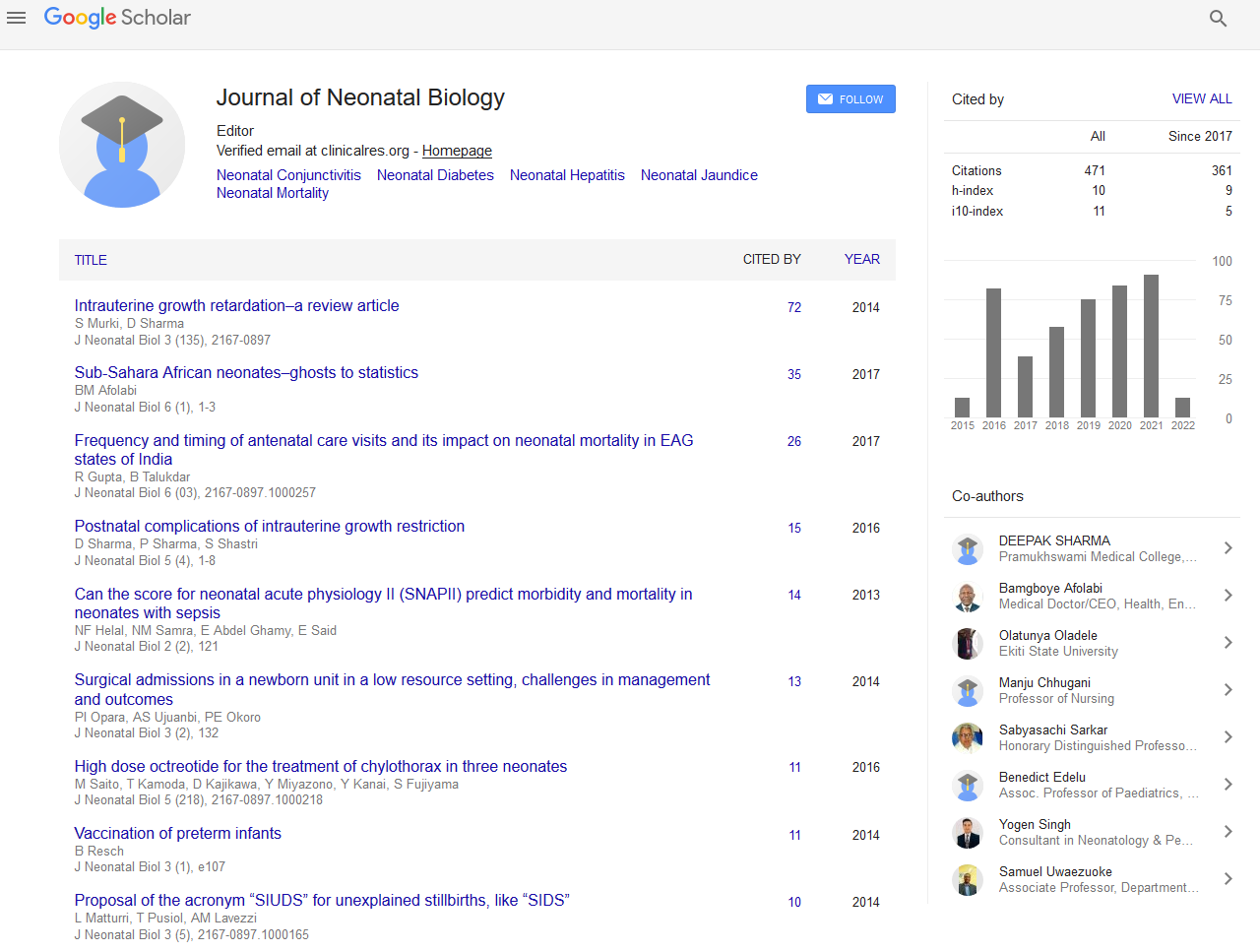PMC/PubMed Indexed Articles
Indexed In
- Genamics JournalSeek
- RefSeek
- Hamdard University
- EBSCO A-Z
- OCLC- WorldCat
- Publons
- Geneva Foundation for Medical Education and Research
- Euro Pub
- Google Scholar
Useful Links
Share This Page
Journal Flyer

Open Access Journals
- Agri and Aquaculture
- Biochemistry
- Bioinformatics & Systems Biology
- Business & Management
- Chemistry
- Clinical Sciences
- Engineering
- Food & Nutrition
- General Science
- Genetics & Molecular Biology
- Immunology & Microbiology
- Medical Sciences
- Neuroscience & Psychology
- Nursing & Health Care
- Pharmaceutical Sciences
Development, reproducibility and validity of a food frequency questionnaire among pregnant women adherent to the Mediterranean dietary pattern
9th International Conference on Neonatology and Pediatric Neurology
November 28-30, 2016 Valencia, Spain
Tatiana Papazian
Saint Joseph University, Lebanon
Scientific Tracks Abstracts: J Neonatal Biol
Abstract:
Accurate dietary assessment tools are required to ensure that maternal diet supplies all the nutrients needed for fetal development. However, no dietary method could accurately estimate food intake, especially during gestation, where physiological changes affecting nutritional status are frequent. Food Frequency Questionnaires (FFQ) are tools frequently used in epidemiological studies, because they can estimate long term nutritional status of the target population. However, it is recommended to create and validate a FFQ compatible with the dietary habits of the studied population, to avoid cultural and social discrepancies. Hence, this study aimed to develop and test the reproducibility and the validity of a semi-quantitative FFQ compatible with the diet of Mediterranean and Middle-Eastern population, in a sample of Lebanese pregnant women. 128 women participated in the validation study, while 38 took part in the reproducibility phase, which was repeated in a time frame of 21 days. The FFQ was validated against a 24 hr. dietary recall (DR). The intra class correlation coefficient (ICC) ranged from 0.935 for calcium to 0.984 for vitamin D (value<0.001), indicating an excellent reproducibility. Spearman�??s and Pearson�??s correlations coefficients varied between 0.294 for iron to 0.762 for caloric intake (p value<0.01) implying a satisfactory agreement between the two tools. Bland-Altman plot showed good agreement between these two dietary tools. In conclusion, the newly developed FFQ englobing Mediterranean food items was culture specific and assessed the nutrient intake of our population. Administering this tool in future researches will help us monitor the nutritional status of pregnant women, aiming at implementing more effective strategies for improving maternal and newborn health.
Biography :
Tatiana Papazian is a Clinical Dietitian and Nutrition Lecturer at the St. Joseph University (USJ), Faculty of Pharmacy since 1997. Her main academic interests are the medical nutrition therapy in pathologies. Currently, in her second year of Doctoral studies at USJ, she is working in the assessment of the nutritional status of pregnant females and the genetic polymorphisms regarding PgP transporters in the placenta, together with the inflammatory markers and its association to the Mediterranean diet and the aflatoxin exposure of both the mother and the child.
Email: tatiana-vp@hotmail.com


